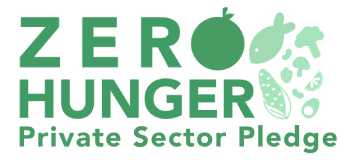
Stories from Companies
Nutriset Group
Nutriset started more than 35 years ago with a clear mandate: to nourish children.
It uses a franchise business model to work with SMEs, social entrepreneurs, and NGOs in Africa, Asia, Europe and North America and provides long-term technical, research, and development assistance for the manufacture of ready-to-use nutritional solutions.
“Today, our mandate has evolved to fight against malnutrition. We not only develop and produce nutritional solutions for vulnerable people, but also support local production to meet local needs such as in Haiti, Burkina Faso, Nigeria, Ethiopia, etc. By contributing to socio-economic development, we are contributing to food security, notes Adeline Lescanne, CEO of the Groupe Nutriset.
Since 2005, Nutriset and its PlumpyField Network, in partnership with UNICEF, the World Food Programme, and many others have treated more than 123 million children.
Joining the Zero Hunger Private Sector Pledge
Nutriset joined the Zero Hunger Private Sector Pledge in September 2021. It committed USD 1.6 million to invest in infrastructure, regulations, technical assistance and services to support SMEs within their value chain in Africa, Haiti and India.
According to Adeline, “Fighting against malnutrition is a challenge that needs partnership and commitment. Nutriset has developed a sustainable model and approach by securing technical assistance. Joining the ZHPSP was a way to strengthen and share this strong commitment.”
Members of the PlumpyField Network benefitting from this assistance include MFK in Haiti, Nutriguinée in Guinea, Innofaso in Burkina, NutriK in Nigeria, Samil in Sudan, Hilina in Ethiopia, Tanjaka in Madagascar and NutriVita in India who produce PlumpyNut.
“Thanks to the continuous support towards our partners, they have managed to secure industrial processes, capacity production extension, compliance with the specifications, client satisfaction, new formulations and new processes to develop new solutions to treat acute malnutrition,” concludes Adeline
